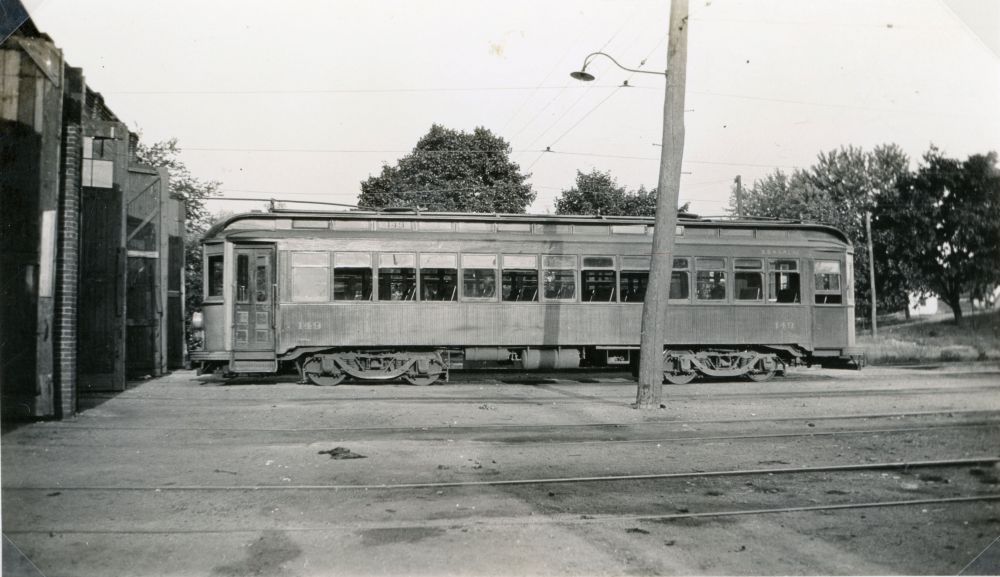
STM Curatorial Collection
- Builder
- Osgood Bradley Car Co.
- Description
- Wood interurban, 'City of Boston'
- Secondary Use
- Residence
- Type
- Interurban Cars
- Year
- 1915
- Acquired by the Museum
- 1959
- Note
- 149 requires extensive restoration
- Fund
- 540
- Sponsor/Manager
- None
Boston & Worcester Railroad 149, City of Boston
From Massachusetts
History
In a state where city and intercity electric service was often provided by a single company or by interoperated connecting lines, there was one true interurban. That was the Boston & Worcester Street Railway (also known as the Boston and Worcester Trolley Air Line) whose primary operation connected the center of Boston with the center of Worcester, connecting the state’s two largest cities. Although the route shared local street railway tracks in the terminal cities, most of the intermediate line was on private right-of-way along today’s Route 9. The company operated the largest street railway cars in Massachusetts, stretched out versions of Boston’s Type 2s, nicknamed the “Battleships”. Osgood Bradley built No. 149 in 1915. Cars 143 and 149 were upgraded in 1926, reaching the highest standards with a large smoking compartment at the rear end. The upgrades included conversion from double-ended to single-ended operation. These cars were named “City of Worcester” and “City of Boston” respectively and ran until the service was abandoned in 1931. In 1927, the Boston & Worcester Street Railway reorganized as the Boston, Worcester & New York Street Railway. Car 149’s body became Frank's Diner in Wayland, MA and then a home and covered with asbestos shingles. It sat in Wayland, MA before being donated to Seashore in 1959.
Museum Ownership: No. 149 was used as an office for a few years, and then placed on trucks and moved to Fairview barn. It was also found to be infested with carpenter ants, and was fumigated. Following this effort it has remained in storage. Electrical and running components acquired from Boston's Metropolitan Transit Authority are on hand for its restoration.
Technical Information
- Seats: 52
Trucks
- Number: 2
Weight and Dimensions
- Length: 47’ 10.00"
- Width: 8’ 3.00"
- Height: 12’ 4.00"
- Weight: 54000 lbs.
© 1998 - 2026 New England Electric Railway Historical Society. All Rights Reserved.